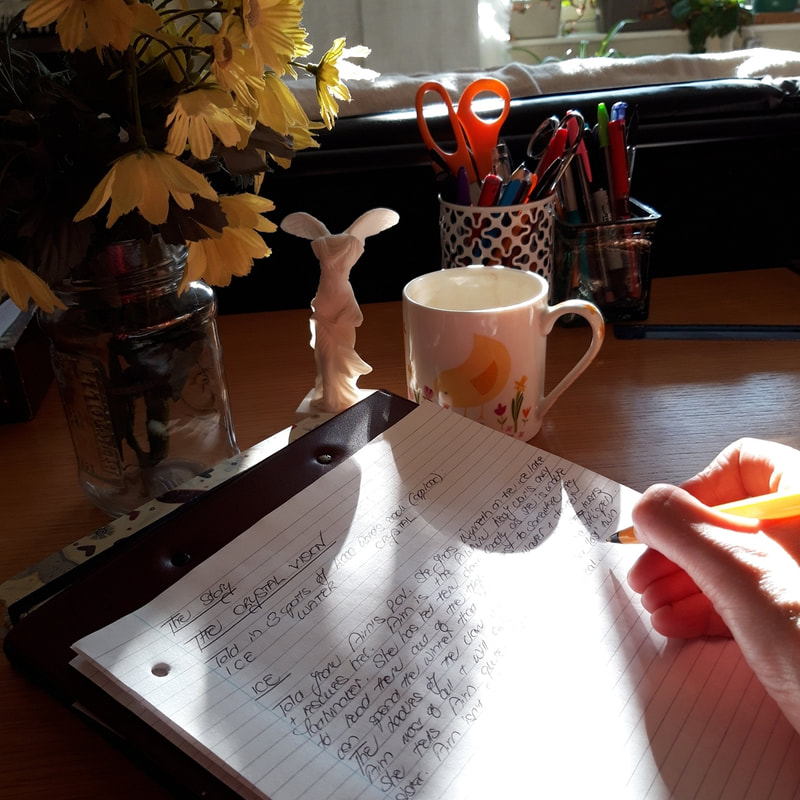Yes, well, it’s all very well to give advice but very hard to take it, particularly when you are talking to yourself, however sternly. When something you’re writing doesn’t work, what are you supposed to tell yourself? Keep writing, you can edit it later? It’s garbage, dump it now? Everything you write is garbage, anyway?
I’ve learned several tricks over the years that help when writing goes badly. There have been many years, mostly writing into a total void, so I have some idea what I’m on about. A new short story I’ve been trying to write recently keeps failing and for several weeks I tried all my usual tricks. These are to:
- Change the title
- Change the main character’s name
- Change everyone’s name
- Start again and change the viewpoint
- Start again with a different scene entirely
- Divide the story up with chapter-type headings for each
- Change the title again
- Edit everything from the beginning to fix up the weak points
- Decide grimly that you’re going to get to 10 000 words without looking back
- And then run aground on poor plotting
- Have a brainstorming session in which you:
- Change the title again
- Change all the characters names
- Cut up a sheet of paper into 12 and on each write a different ending to work out where your story is supposed to be going
- Go and make some Lemsip because you’re ill and can’t think anymore (this is optional)
- Realise you need to change the MC’s vision
- Realise how you can tie this in to the ending
- Suddenly come up with a brilliant ending
- Sit down the next day to start writing and it’s still all shit
- Beat yourself up with a rolling pin
Between the Lemsip and the rolling pin, there are some good points here:
- The title is vital. Once I found the right title, I knew what the story was actually about.
- Names are vital, too. If you don’t like a character’s name, you’re not going to be able to develop them well.
- Viewpoint is everything. Once I found the right viewpoint, the story opened up much more easily.
- You can’t always know the entire plot when you begin. Not all stories are the same. Sometimes I know everything from the start, other times I have to stop and think about it. Some stories develop while you write them.
- Make notes. I often make more notes than I need. I often then ignore almost all the notes and come up with a good story, anyway. It’s just a way of getting the juices going.
- Know your ending. The hardest things I’ve ever written are those in which the ending isn’t clear. It’s always blindingly obvious when an author has no idea what the ending is and either just trails off or comes up with something that doesn’t make sense. Even in a ten-volume work, you need to know the ending from page one of the first volume.
By now, I’d had some excellent ideas and knew exactly where the story was going. It was exciting, interesting and I couldn’t wait to get (re)started. Unfortunately, I then hit the next brick wall: the actual words on the page. So far, they had been lumpy, unstrung, and felt like the kind of Worthy Fantasy that I loathe. This was not what I was going for. Yet another new start (fresh document, the old ones abandoned in the folder like crumpled-up paper in a wastepaper basket) and I still couldn’t find the story’s style.
At this point, my writing spirit died. My confidence expired. I was convinced I’d never be able to write again. This wasn’t writer’s block: it was just writing bad. But for this, at least, I have advice too, which I will endeavour to follow:
- Leave it alone. Stop writing. Go and do something else. I’ve been ill so I should concentrate on getting better. Walks under the few trees left in London. Bake tea breads. Read. Knit. Do jigsaw puzzles. Clean the bathroom. Write blogs(!)
- Handwrite it. This is very painful. And slow. And prevents you from going back and editing anything because reading one’s own handwriting is inevitably quite an effort. You are thus forced to keep going until you get to the end. It doesn’t matter how bad it is – it’s now ON PAPER. It’s done. It’s written. Your writing spirit is restored.
At this point, all your troubles will be forgotten. You’ve got your story, even if it is on lined school paper. By having to retype it (long, slow, laborious, particularly if your handwriting is anything like mine), you will see all the errors. Feel free to make editing notes. Write them up as The Big Edit. This is the fun part: this is when you get to bash the story into the exact shape you want it. Confidence will long since have returned because you GOT IT DOWN. Fixing something that is already written is way easier than fixing something that hasn’t even been written yet.
So. I have my pen. I have my paper. Next week I’m going to write. By hand.



 RSS Feed
RSS Feed
